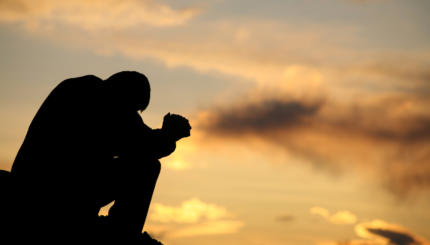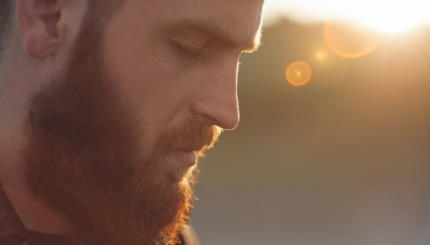I first encountered the Asher Yatzar blessing, the Jewish “bathroom prayer,” in kindergarten as my day school classmates and I droned the morning prayers. The blessing, traditionally recited after one uses the restroom, thanks God for the workings of the human body.
Learn the text of the Asher Yatzar blessing.
Even as a kindergartner, I was fascinated and puzzled by its image of “God’s seat of honor.” As an older child, the words of Asher Yatzar witnessed me. By describing the body in a state of constant threat from even a tiny impairment, the prayer captured a truth about my own home life. My mother contracted polio when she was 11, and her precarious balance (she dragged her left leg) would lead occasionally to her breaking an arm or leg. When my mother went down with an injury, our life — my life — was thrown a painful curve ball, making it “impossible to stand before You.”
In addition, my father was a Holocaust survivor. So while I had my own age-appropriate sense of immortality, I knew that my father’s entire family had been starved, tortured and murdered by gas. Having a body was a clear disadvantage to my martyred relatives. I spent a lot of my childhood playing sports as if my life depended on winning, speeding, throwing, catching, and beating every and all competitor. Perhaps if my body did not win, it would die. Asher Yatzar’s reminder of death’s closeness has always been a scary comfort to me.

Help us keep Jewish knowledge accessible to millions of people around the world.
Your donation to My Jewish Learning fuels endless journeys of Jewish discovery. With your help, My Jewish Learning can continue to provide nonstop opportunities for learning, connection and growth.
Nowadays, in my work as a drum circle facilitator, feminist liturgist, and sacred music singer-songwriter, the words of this blessing extolling the Creator for fashioning bodies that are intricate, tube-filled, rhythmic, vulnerable and miraculous call out to me again. The author of Asher Yatzar describes the human body as sustained by divine rhythm: “If one tube closes when it should be open, or if one cavity opens when it ought to be closed we could not exist.”
I similarly see group drumming as a bio-energetic entrainment game in which participants become one large interconnected body and mind. When newcomers to my drum circle introduce themselves as non-drummers, I usually tell them, “You have been drumming all of your life with every part of your body. Let’s see if your hands and fingers can do some of what the rest of you is doing!”
I recently wrote an expanded version of the Asher Yatzar inspired by my work with the Kohenet Hebrew Priestess Training Institute, which prepares Jewish women for ritual leadership, from an earth-based, feminist perspective. Its opening lines are here:
I bless Shechinah for creating my body
I bless Shechinah for my beautiful form
With passageways and organs working together
Chambers of wonder that open and close
But if one of them should fail, I cannot stand before You
Shechinah You’re my healer, the Life Force that I know
In my heart beating, lungs breathing, muscles reaching,
excreting, pleasure seeking, deep feeling
body in rhythm singing Your song
Openings, chalulim, boundaries, nnnnn’kavim
Openings, chalulim, boundaries, mmmmmysteries
I bless Shechinah for the wisdom inside me
I bless Shechinah for my skin, flesh and bone
I’m an animal creature of hunger and kindness
A puzzle of pieces, fragile and strong
Shoshana Jedwab is a concert performer, singer/songwriter, prayer and ritual leader, hand drummer, drum circle facilitator, and sacred text teacher. She can be reached through her website.



